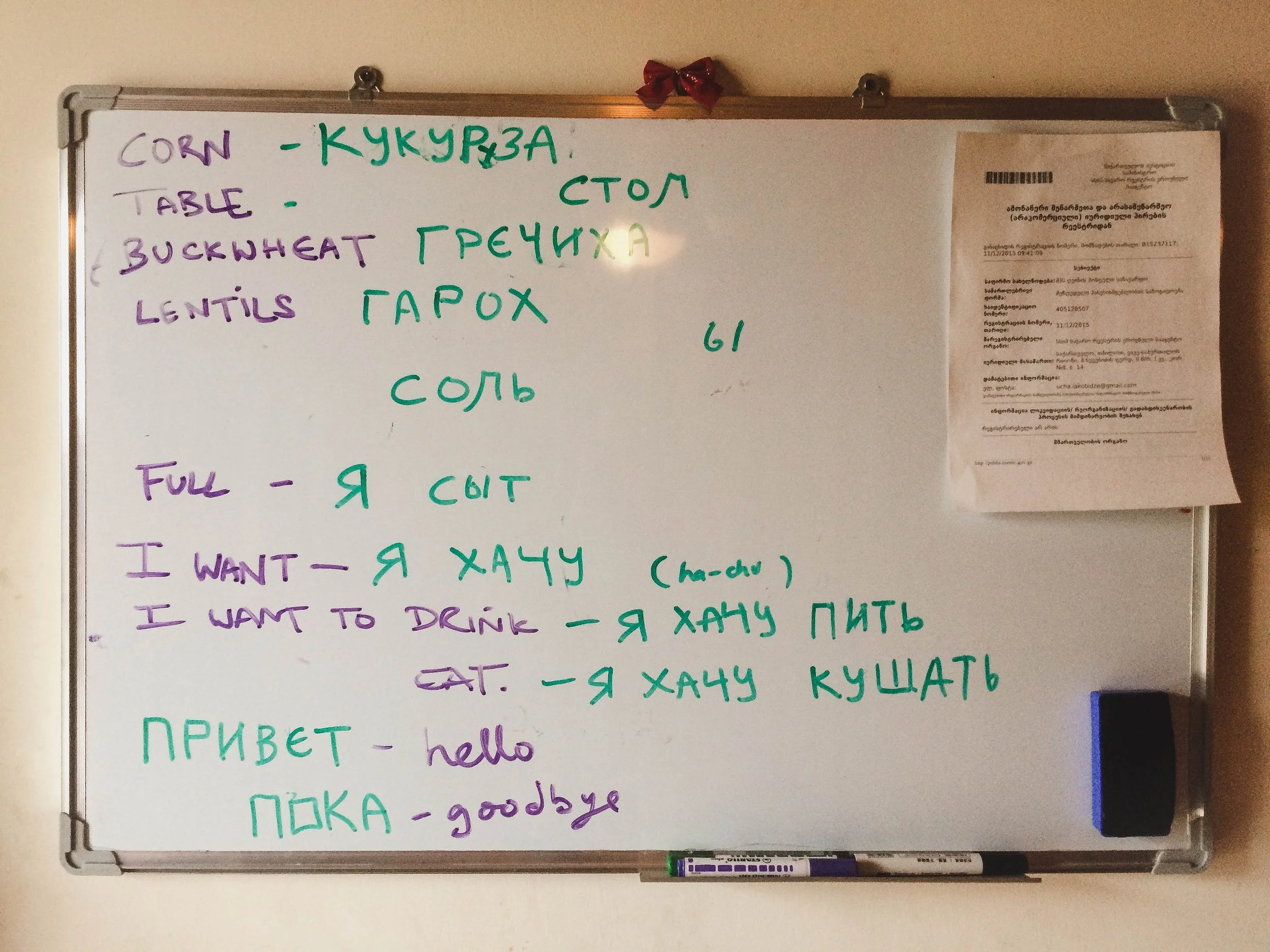TOP 10 WORDS TO LEARN IN ANY LANGUAGE
New country, new language, same needs: the best words to learn in each language
Travel gives us the opportunity to see, experience, and learn things we hadn’t dreamed of. Adventure travel especially takes us away from the norm, away from the tourists, and away from the locals who have learned English to cater to us. But for the majority of travelers, mastering a new language is not only difficult but will definitely not happen while we’re in that country. So instead of trying to learn the entire language at once, here are the first 10 words to learn that will get you going on both your quest for language acquisition, as well as help you survive your adventure.
A great way to learn the important words is to have a list somewhere where you’ll see it all day.
The Basics: Yes, No, and Hello
You will inevitably learn these first out of sheer repetition. Every human you pass along your off the beaten track route (especially the kids) will yell ‘Hello!’ as you pass through the streets of their towns and villages. You will hear and say ‘hello’ more than you ever thought possible. Years later, when you’ve settled back into your regular life and forgotten all the other words you’d learned, ‘hello’ will stay with you.
Yes and No kind of come together as a package deal. You may never know what you’re being asked, but you’ll know how to respond, so that’s half the battle! The nice thing also about yes and no is that most places in the world can understand a head nod or shake, though double-check because there are a few places that use those signals backward
Survival: Food, Water, Sleep
Your three basic survival words to learn are next. Food, water, and shelter are our three primal needs, and it’s definitely going to be of service to you to be able to ask for them. Whether you’ve just gotten to town and you’re looking for a day off in a fluffy bed, or you’re riding through a desert and are asking a passing driver to refill your water bottles, these words are going to keep you alive.
Learning a new language and a new alphabet can be a challenge.
Planning: Near and Far
Now that you’ve established there is water, food, or shelter somewhere, the next stage is to figure out how long it will take you to get there. This is where near and far come into play. “Is there water there?” “Yes.” “Is it near?” “No.” Now you know you need to ration your water supply. Though realistically that exchange would go more, “Water?” “Yes, incomprehensible rest of the sentence.” “Near?” “No, rest of sentence giving details that you definitely aren’t understanding.”
Social Niceties: Please and Thank you
These aren’t strictly necessary words to learn, but I think the world would be a better place if people made more of an effort to be polite to each other. Plus, please and thank you will help get you what you’re looking for. Having worked in customer service for many years I can tell you definitively that people who were polite and patient got way better service than the rude angry people.
When you’re traveling, especially adventure travel, you’re probably not carrying much with you that isn’t strictly necessary. Which means that when people you meet along the way are kind and giving to you, there’s a likelihood you have very little to give back to them. Except for leaving them with the memories of a wonderful experience. Knowing please and thank you in their language is a great way to start out that exchange of experiences.
Most people will happily share their water and kefir, as long as they know what you’re asking for.
Bonus Word: Sorry
I can’t help myself, I’m Canadian and I say sorry. A lot. Probably too much. So I also make sure to learn it in every language, because it will come out of my mouth unbidden, so I may as well say it so everyone can understand it.
So there you have it. Ten words to learn in every language you’ll encounter. The good news is that learning ten words will be easy. Bad news is you’re probably going to want to learn more so that you can understand the responses. But that seems like a problem for future you. For now, celebrate your mastery of another language. You’re now a polyglot!


